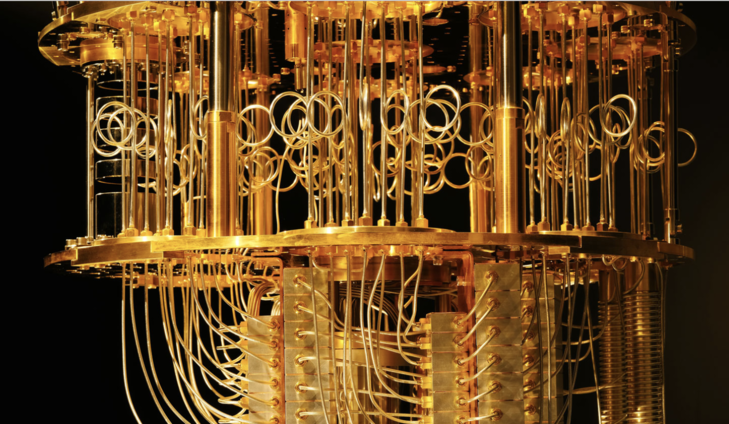The development of quantum computing is expected to be promising for the tech industry, with many companies vying to be at the forefront of this novel technology. Superconducting qubits, we should mention, are a cornerstone of quantum computing that may allow for more powerful calculations than ever before.
Here we take a look at six companies that are playing an important role in the development of superconducting qubits.
Before that, however, we should briefly explain what superconducting computing, and the underlying superconducting qubits, are.
What are Superconducting Qubits?
Superconducting qubits are a type of quantum bit or qubit that uses superconductors to help store, process and transmit data. These qubits are part of the broader field of quantum computing, which is an emerging technology with potential applications in everything from artificial intelligence (AI) to cryptography. Quantum processors based on these types of qubits are developed from superconducting circuits that are cooled to low temperatures. Microwave pulses are used to control the quantum states of the qubits, allowing for quantum information processing. This allows the qubits to occupy many different energy states at once, effectively creating multiple “paths” through which information can travel.

Don’t forget to check out our article on the best quantum computing companies.
6 Companies Developing Superconducting Qubits
Here we provide only six examples of companies working with superconducting qubits. There are many research groups and companies also working on this qubit modality (we track 20 private companies alone in our Market Intelligence Platform.
1. Anyon Sytems

Anyon Systems Inc. is a quantum computing company that develops and commercializes quantum computing platforms for high-performance computing centres. Founded in 2014, it is the first Canadian company that manufactures universal, gate-based quantum computers.
Anyon offers its Qube, an all-in-one superconducting quantum computer that integrates seamlessly into existing HPC centers. The system’s cryogenic and electronics systems are packaged in a stand-alone unit. A modular design facilitates shipping, assembly, testing, and servicing.
The Qube™ comes with a user-friendly human-machine interface and requires minimal maintenance thanks to our closed-cycle cryogenic system.
Visit company’s profile page.
2. Atlantic Quantum

Founded in 2022 by the Engineering Quantum Systems (EQuS) group at MIT led by Prof. William D. Oliver and Principal Research Scientist Simon Gustavsson, superconducting qubit company Atlantic Quantum’s mission is to develop superconducting quantum computers with the quality and size needed to tackle the world’s hardest computational challenges by applying novel types of noise-protected qubits to improve coherence times by an order of magnitude compared to conventional approaches.
Atlantic Quantum believes fault-tolerant quantum hardware is the key to making significant progress in quantum computing. It is achieving this on the foundation of decades of pioneering scientific research at MIT.
Visit company’s profile page.
3. Bleximo

Bleximo is a Berkley-based quantum startup building full-stack, superconducting, application-specific quantum computers, co-designing algorithms and hardware with a mission to deliver quantum advantage
Bleximo’s superconducting qubit-based quantum accelerators (qASIC) operate in conjunction with conventional powerful computers to tackle problems which are impractical or even impossible to solve on conventional digital computers alone.
Presently, this superconducting qubit company’s attention is on providing quantum accelerators for simulating the structure and properties of molecules and chemical reactions, while at the same time working on cryogenic hardware solutions for their superconducting quantum processors’ packaging and shielding.
Visit company’s profile page.
4. IQM

IQM was founded in 2018 by Jan Goetz, Juha Vartiainen, Kuan Yen Tan, and Mikko Möttönen as a spinoff of the Quantum Computing and Devices research group of Aalto University.
This superconducting qubit company is hard at work developing QC hardware utilizing superconducting qubits for a universal general-purpose quantum computer and is building Finland’s first 54-qubit quantum computer with the Technical Research Centre of Finland VTT and an IQM-led consortium (Q-Exa) is also building a quantum computer in Germany. This computer will be integrated into an HPC supercomputer to create a quantum accelerator for future scientific research.
Visit company’s profile page.
5. Oxford Quantum Circuits
Oxford Quantum Circuits (OQC) is a superconducting qubit company founded in 2017 by Clarendon Laboratory Oxford professor, Peter Leek. OQC’s superconducting circuit quantum computer is a complete functional unit, including the control system, the hardware and the software.
Its core IP, the Coaxmon (a type of qubit), has a three-dimensional architecture that brings key componentry off-chip for increased scalability.
Visit company’s profile page.
6. Rigetti Computing

Rigetti Computing is a Berkeley, California-based superconducting qubit company that develops quantum integrated circuits used for quantum computers. Founded in 2013 by Chad Rigetti, Rigetti’s quantum processors are universal, gate-model machines based on tunable superconducting qubits.
Rigetti’s Aspen-M-2 is an 80-qubit processor based on scalable multi-chip technology and features enhanced readout capabilities that contribute to better overall circuit fidelities independent of depth and width.
This superconducting qubit company also develops a cloud platform called Forest that enables programmers to write quantum algorithms.
Visit company’s profile page.
Summary
Superconducting qubits are competing on the market and in the research labs with several other qubit modalities that include photonic qubits, silicon quantum dots, trapped ions, neutral atoms, and nitrogen-vacancy centres, to name a few. As to the best approach; so far, the jury is still out as to which one will see the most success in achieving the holy grail of a universal, fault-tolerant quantum computer.
Do superconducting qubit companies have a marked advantage over the other modalities in getting to this point?
Who knows. the faster operation time of superconducting quantum computation over, say, ion traps, may see superconducting qubits companies get to this point before any of the others do. Nonetheless, we are seeing innovation across qubit modalities and it is too early to call winners.
Featured image: Credit: IBM Quantum Hub
If you found this article to be informative, you can explore more current quantum news here, exclusives, interviews, and podcasts.
















